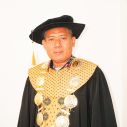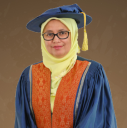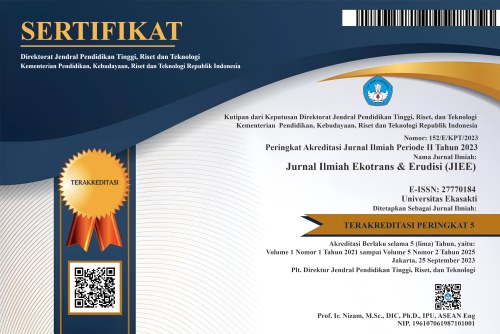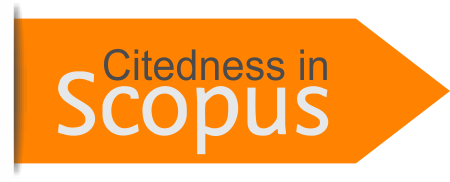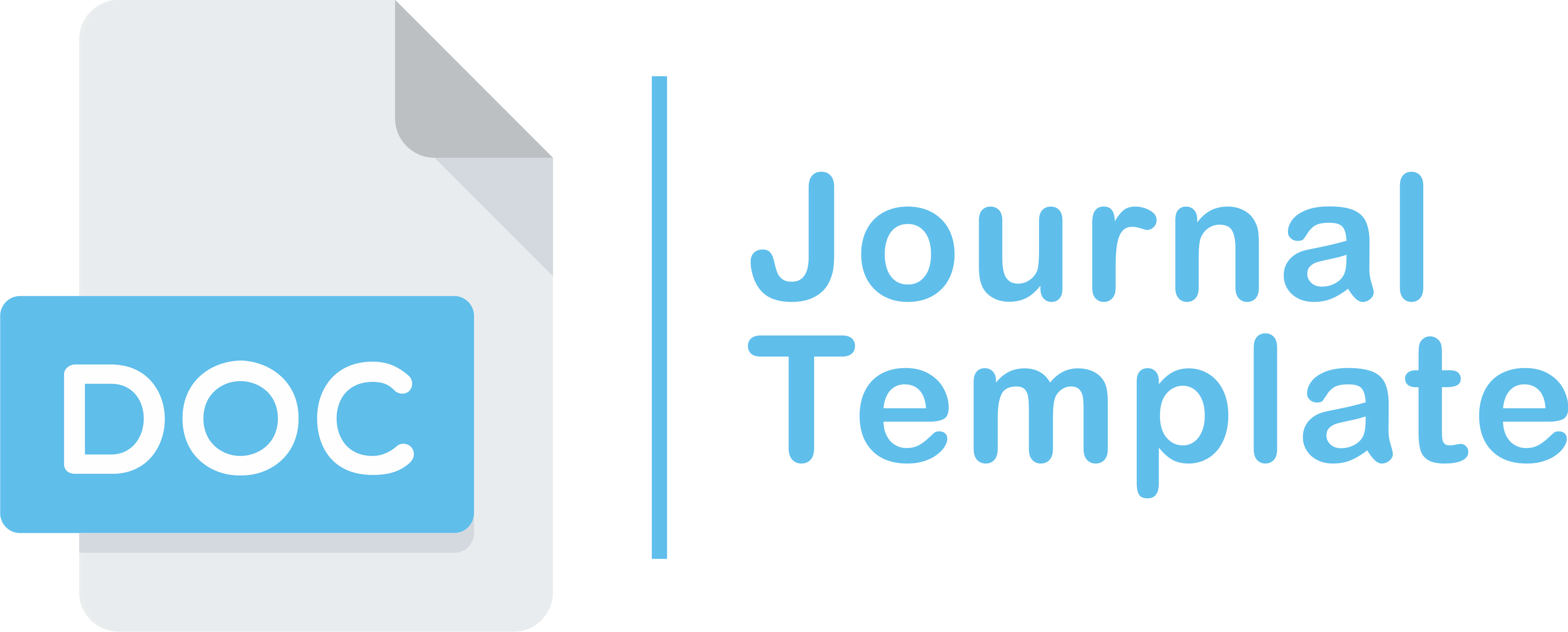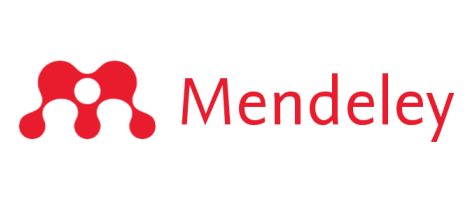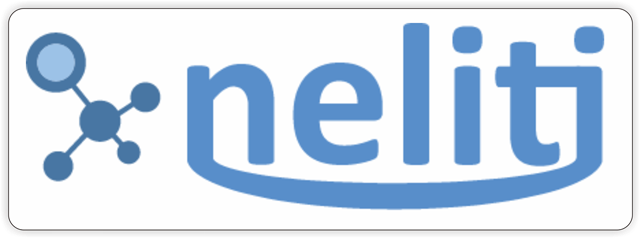Social Interaction in Basic Training for Prospective Civil Servants Using the Blended Learning Method
DOI:
https://doi.org/10.69989/qbx4h488Keywords:
Social Interaction, Basic Training, Civil Servant Candidates, Blended LearningAbstract
The movement in the style of Basic Training for Civil Servant Candidates (CPNS) from traditional or face-to-face methods to blended learning has been prompted by advancements in information technology and the COVID-19 pandemic outbreak. Changes in training patterns result in alterations to the social interaction processes conducted among organizers, teachers, and participants. In the classical method, direct social contact is abundant, whereas in blended learning, digital-based communication media predominantly facilitate the engagement process. This study employs a literature review methodology to offer a comprehensive picture of social interactions during the CPNS Basic Training process, utilizing the blended learning approach.
Downloads
References
Anderson, E. P., Jackson, S., Tharme, R. E., Douglas, M., Flotemersch, J. E., Zwarteveen, M., Lokgariwar, C., Montoya, M., Wali, A., & Tipa, G. T. (2019). Understanding rivers and their social relations: A critical step to advance environmental water management. Wiley Interdisciplinary Reviews: Water, 6(6), e1381.
Aston, A. (2019). Metaplasticity and the boundaries of social cognition: Exploring scalar transformations in social interaction and intersubjectivity. Phenomenology and the Cognitive Sciences, 18(1), 65–89.
Baghdadi, Y. (2016). A framework for social commerce design. Information Systems, 60, 95–113.
Baldwin, T. T., & Magjuka, R. J. (2014). Training as an organizational episode: Pretraining influences on trainee motivation. In Improving training effectiveness in work organizations (pp. 99–127). Psychology Press.
Banerjee, S., Frey, H., Molholm, S., & Foxe, J. J. (2015). Interests shape how adolescents pay attention: the interaction of motivation and top‐down attentional processes in biasing sensory activations to anticipated events. European Journal of Neuroscience, 41(6), 818–834.
Bernard, R. M., Borokhovski, E., Schmid, R. F., Tamim, R. M., & Abrami, P. C. (2014). A meta-analysis of blended learning and technology use in higher education: From the general to the applied. Journal of Computing in Higher Education, 26, 87–122.
Bojović, Ž., Bojović, P. D., Vujošević, D., & Šuh, J. (2020). Education in times of crisis: Rapid transition to distance learning. Computer Applications in Engineering Education, 28(6), 1467–1489.
Bond, M. A., & Blevins, S. J. (2020). Using faculty professional development to foster organizational change: A social learning framework. TechTrends, 64(2), 229–237.
Bonk, C. J., & Cunningham, D. J. (2012). Searching for learner-centered, constructivist, and sociocultural components of collaborative educational learning tools. In Electronic collaborators (pp. 25–50). Routledge.
Cabral, C., & Dhar, R. L. (2019). Green competencies: Construct development and measurement validation. Journal of Cleaner Production, 235, 887–900.
Capozzi, F., & Ristic, J. (2018). How attention gates social interactions. Annals of the New York Academy of Sciences, 1426(1), 179–198.
Carmeli, A. (2003). The relationship between emotional intelligence and work attitudes, behavior and outcomes: An examination among senior managers. Journal of Managerial Psychology, 18(8), 788–813.
Chang, C.-C., & Hwang, G.-J. (2022). A structured reflection-based graphic organizer approach for professional training: A technology-supported AQSR approach. Computers & Education, 183, 104502.
Chukwu, G. M. (2016). Trainer attributes as drivers of training effectiveness. Industrial and Commercial Training, 48(7), 367–373.
Coman, C., Țîru, L. G., Meseșan-Schmitz, L., Stanciu, C., & Bularca, M. C. (2020). Online teaching and learning in higher education during the coronavirus pandemic: Students’ perspective. Sustainability, 12(24), 10367.
Forgas, J. P., & Williams, K. D. (2016). Social influence: Direct and indirect processes. Psychology Press.
Fujs, D., Vrhovec, S., Žvanut, B., & Vavpotič, D. (2022). Improving the efficiency of remote conference tool use for distance learning in higher education: A kano based approach. Computers & Education, 181, 104448.
Gallotti, M., Fairhurst, M. T., & Frith, C. D. (2017). Alignment in social interactions. Consciousness and Cognition, 48, 253–261.
García-Peñalvo, F. J. (2021). Avoiding the dark side of digital transformation in teaching. An institutional reference framework for eLearning in higher education. Sustainability, 13(4), 2023.
Gonzales, A. (2016). The contemporary US digital divide: From initial access to technology maintenance. Information, Communication & Society, 19(2), 234–248.
Haven, T., Bouter, L., Mennen, L., & Tijdink, J. (2023). Superb supervision: A pilot study on training supervisors to convey responsible research practices onto their PhD candidates. Accountability in Research, 30(8), 574–591.
Homans, G. C. (2017). The human group. Routledge.
Johari, J., & Yahya, K. K. (2016). Job characteristics, work involvement, and job performance of public servants. European Journal of Training and Development, 40(7), 554–575.
Keputusan Kepala LAN Nomor 14/K.1/PDP.07. (2022). Tentang Kurikulum Pelatihan Dasar Calon Pegawai Negeri Sipul. 1–53.
LAN RI Nomor 1. (2021). Peraturan Lembaga Administrasi Negara Republik Indonesia Nomor 1 Tahun 2021 Tentang Pelatihan Dasar Calon Pegawai Negeri Sipil. LAN RI Nomor 1, 1–28.
Lebuda, I., & Csikszentmihalyi, M. (2020). All You Need Is Love: The Importance of Partner and Family Relations to Highly Creative Individuals’ Well‐Being and Success. The Journal of Creative Behavior, 54(1), 100–114.
Lindawati, R. D., Maslova, Z. N., & Rubtsova, A. V. (2022). Indonesian Customs and Excise Training Center During COVID-19 Pandemic: Innovative System of Educational Process Management. Technology, Innovation and Creativity in Digital Society: XXI Professional Culture of the Specialist of the Future, 783–794.
Litvinenko, V., Bowbriсk, I., Naumov, I., & Zaitseva, Z. (2022). Global guidelines and requirements for professional competencies of natural resource extraction engineers: Implications for ESG principles and sustainable development goals. Journal of Cleaner Production, 338, 130530.
Liu, M., & Yu, D. (2023). Towards intelligent E-learning systems. Education and Information Technologies, 28(7), 7845–7876.
Murray, D. R., & Schaller, M. (2016). The behavioral immune system: Implications for social cognition, social interaction, and social influence. In Advances in experimental social psychology (Vol. 53, pp. 75–129). Elsevier.
Narwoko, J. D., & Suyanto, B. (2004). Sosiologi teks pengantar dan terapan. Jakarta: Prenada Media.
Nurhadi, N. (2020). Blended Learning Dan Aplikasinya Di Era New Normal Pandemi Covid-19 Blended Learning and Its Application in the New Normal Era of the Covid-19 Pandemic. Jurnal Agriektensia, 19(2), 121–128.
Oakes, J., & Rogers, J. (2006). Learning power: Organizing for education and justice. Teachers College Press.
Peters, O. (2020). Distance teaching and industrial production* A comparative interpretation in outline. In Distance education (pp. 95–113). Routledge.
Rapanta, C., Botturi, L., Goodyear, P., Guàrdia, L., & Koole, M. (2020). Online university teaching during and after the Covid-19 crisis: Refocusing teacher presence and learning activity. Postdigital Science and Education, 2, 923–945.
Ritter, S. M., & Mostert, N. (2017). Enhancement of creative thinking skills using a cognitive-based creativity training. Journal of Cognitive Enhancement, 1, 243–253.
Salman, M., Ganie, S. A., & Saleem, I. (2020). The concept of competence: a thematic review and discussion. European Journal of Training and Development, 44(6/7), 717–742.
Saputra, N., & Mulia, R. A. (2021). Pengaruh Kompetensi, Lingkungan Kerja Dan Motivasi Berprestasi Terhadap Kinerja Pegawai Negeri Sipil Sekretariat Daerah Kota Padang. Jurnal Ilmiah Ekotrans & Erudisi, 1(1), 1–24.
Sarwono, J. (2006). Motede Penelitian Kuantitatif dan Kualitatif. In Graha Ilmu: Vol. I (I). Graha Ilmu.
Setiadiputra, R. Y. P. (2017). Urgensi program pengembangan kompetensi sdm secara Berkesinambungan di lingkungan instansi pemerintah. Sawala: Jurnal Administrasi Negara, 5(1), 16–22.
Shawer, S. F. (2017). Teacher-driven curriculum development at the classroom level: Implications for curriculum, pedagogy and teacher training. Teaching and Teacher Education, 63, 296–313.
Simões Aelbrecht, P. (2016). ‘Fourth places’: the contemporary public settings for informal social interaction among strangers. Journal of Urban Design, 21(1), 124–152.
Skorková, Z. (2016). Competency models in public sector. Procedia-Social and Behavioral Sciences, 230, 226–234.
Syamsir, S., & Saputra, N. (2022). Administrasi Kepegawaian. CV. Eureka Media Aksara.
Tomczyk, Ł., & Walker, C. (2021). The emergency (crisis) e-learning as a challenge for teachers in Poland. Education and Information Technologies, 26(6), 6847–6877.
Uhm, M., Lee, G., & Jeon, B. (2017). An analysis of BIM jobs and competencies based on the use of terms in the industry. Automation in Construction, 81, 67–98.
Vanslambrouck, S., Zhu, C., Lombaerts, K., Philipsen, B., & Tondeur, J. (2018). Students’ motivation and subjective task value of participating in online and blended learning environments. The Internet and Higher Education, 36, 33–40.
Warner, L. H. (2020). Developing interpersonal skills of evaluators: A service-learning approach. American Journal of Evaluation, 41(3), 432–451.
Zakki, A., Husna, A., Adha, I., Al-Mitsaq, H., Zul Ilmil Haq, O., & Nasution, S. (2022). Aksiologis dalam Pendidikan Indonesia (Tinjauan Pasal 1 Ayat 1 UU No. 20/2003 Tentang Sistem Pendidikan Nasional). Jurnal Nusantara of Research, 9(1a), 103–115.
Zhang, T., Shaikh, Z. A., Yumashev, A. V, & Chłąd, M. (2020). Applied model of E-learning in the framework of education for sustainable development. Sustainability, 12(16), 6420.
Downloads
Published
Issue
Section
License
Copyright (c) 2023 Jerry Marantika, Aldri Frinaldi (Author)

This work is licensed under a Creative Commons Attribution-ShareAlike 4.0 International License.
Copyright Notice
An author who publishes in the journal "Jurnal Ilmiah Ekotrans & Erudisi" agrees to the following terms:
Author retains the copyright and grants the journal the right of first publication of the work simultaneously licensed under the Creative Commons Attribution-ShareAlike 4.0 License that allows others to share the work with an acknowledgement of the work's authorship and initial publication in this journal
Author is able to enter into separate, additional contractual arrangements for the non-exclusive distribution of the journal's published version of the work (e.g., post it to an institutional repository or publish it in a book) with the acknowledgement of its initial publication in this journal.
Author is permitted and encouraged to post his/her work online (e.g., in institutional repositories or on their website) prior to and during the submission process, as it can lead to productive exchanges, as well as earlier and greater citation of the published work (See The Effect of Open Access).
All materials in this site are protected by the law. It is prohibited to quote a part of or all of this website contents for commercial purposes without the permission or consent of the editors.
If anyone finds one article or more in this journal violate or potentially violate one’s copyrights, please report to us through e-mail of Principle Contact.
Legal-formal aspects of accessing any information and manuscript in this journal website refer to the provision of license Creative Commons Attribution-Share Alike (CC BY-SA). Read more about the Creative Commons Attribution-ShareAlike 4.0 Licence here: https://creativecommons.org/licenses/by-sa/4.0/.
All information available in 'Jurnal Ilmiah Ekotrans & Erudisi' is academic in nature. 'Jurnal Ilmiah Ekotrans & Erudisi' is not responsible for loss due to the abuse of information in the website.
Information
Notice about change in the copyright policy of the journal 'Jurnal Ilmiah Ekotrans & Erudisi' : "From Volume 1, Nomor 1 onwards the copyright of the article published in the journal 'Jurnal Ilmiah Ekotrans & Erudisi' will be retained by the author"
Privacy Statement
The names and email addresses entered in this journal site will be used exclusively for the stated purposes of this journal and will not be made available for any other purpose or to any other party.


